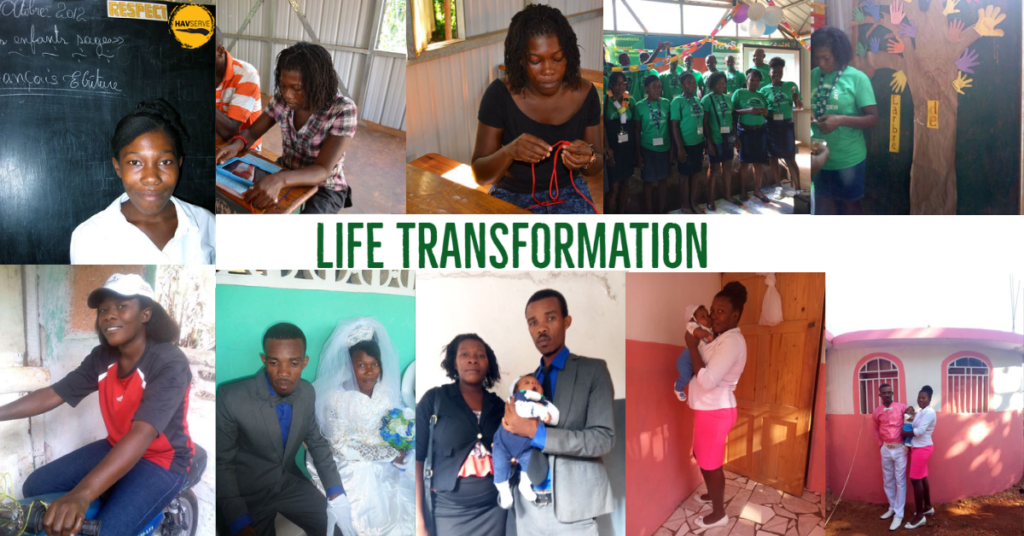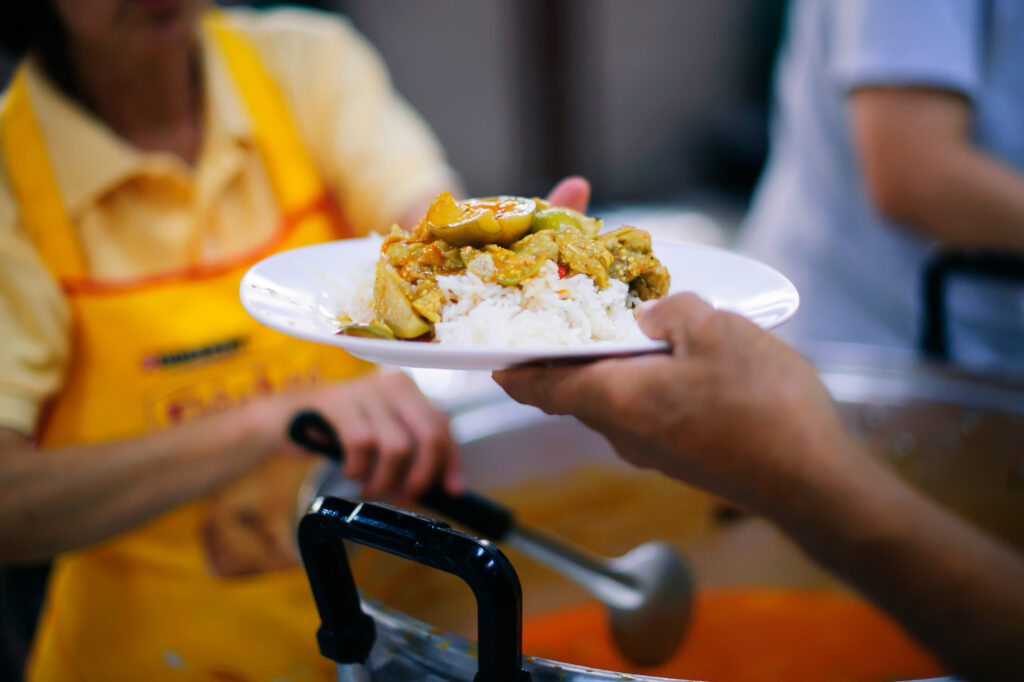The Universal Declaration on Volunteering
Muhammad Ali once stated, “Wars of nations are fought to change maps. But wars of poverty are fought to map change.”
The prize fighter might not be known for his insights on the plague of hunger, but his concern demonstrates that poverty is mankind’s fight. The war can only be won by enlisting the masses.
During his days as a pugilist, Ali became the most recognized person in the world. He appreciated the love of fans, but wished that people would give that same love to each other: “I wish people would love everybody else the way they love me. It would be a better world.”
The world is not a better place yet. Haiti, for example, has rampant poverty and impoverished minds where 50 percent of children do not attend school. Furthermore, 80 percent will not graduate high school.
Eight million people are in poverty. With the populace retreating away from the cities, the crisis of education, housing, and eradicating poverty is heightened. Prior to the great earthquake in 2010, about two-thirds of the population was unemployed. The numbers have grown since the immense tremor.
Statistics is but numbers. Percentages recorded on paper do not tell of the horrific pain a mother feels when the only choice she has is prostitution to feed and send her only daughter to school. Bulletins claiming progress on the hunger of the masses in Haiti do little to comfort a father who has lost his wife, children, home, job and extended families to the earthquake and cholera outbreak.
Volunteers are too few. Dollars are too short. Progress is being made,but too slow.
“Poverty is the worst form of violence,” said Mahatma Gandhi.
The International Association for Volunteer Effort established a Universal Declaration on Volunteering in January 2001. If the declaration were followed by volunteers in sufficient numbers, Haiti would soon be flourishing with educated children. If printing the entirety of the Universal Volunteering Declaration would achieve the goal, print it the size of a billboard.
In part, the Declaration on Volunteering says, “Human values of community, and serving can be sustained and strengthened” through volunteering.
It declares, “Connections can be made across differences that push us apart so that we can live together in healthy, sustainable communities, working together to provide innovative solutions to our shared challenges and to shape our collective destinies.”
For Americans, there is the Declaration of Independence—for Christians, the Bible—for Mormons, the book of Mormon —for Jews, the Torah— and for Muslims, the Koran. For those who believe volunteering changes lives, there is the Universal Declaration on Volunteering.
Nearly 2 billion people claim to be religious, but only a small fraction spend an hour helping another human being. For example, millions of children still have worms infesting their small bodies. A deworming program will invigorate their little lives.
The failure to volunteer screams at those sitting in comfortable chairs. “In a country well governed, poverty is something to be ashamed of. In a country badly governed, wealth is something to be ashamed of.” (Confucius)
This blog post is a call to action. The precepts set forth in the Universal Declaration on Volunteering are powerful. If employed, volunteers will eradicate hunger, children universally will be educated, and a global health objective will be achieved. Two years after the devastating Haiti earthquake progress is too slow.
However, a challenge to readers: (1) study the declaration and (2) volunteer one-week of vacation time to empower Haitians with the skills they need to rebuild their country, or (if you consider your time too valuable) a donation of a week’s worth of salary to help someone else volunteer.
If one child has worms crawling in their belly, how can a call to action go unanswered? Worms prevent a child’s crucial first step toward achieving his/her primary education years and improving long-term productivity.
This writer has Parkinson’s disease, insulin-dependent diabetes, diabetic neuropathy, Parkinson’s dementia and a host of other medical malaises. I might hobble with a walker; nevertheless, I herewith personally accept the call to action. I agree to work in Haiti for a week in any capacity, which might save lives and bring comfort. Together with the volunteers who accept the challenge, we can cover the miles to eradicate hunger, foster education, and restore human dignity.
“Being unwanted, unloved, uncared for, forgotten by everybody, I think that is a much greater hunger, a much greater poverty than the person who has nothing to eat.” (Mother Teresa)
The Universal Declaration on Volunteering states that organizations and communities will “create environments in which volunteers have meaningful work that helps achieve agreed-upon results; provide volunteers with appropriate training and ensure access for all by removing physical, economic, social and cultural barriers to their participation.”
The declaration effectively eliminates excuses. “All volunteers to proclaim their belief in volunteer action as a creative and mediating force that: it builds healthy, sustainable communities that respect the dignity of all people; it empowers people to exercise their rights as human beings, thus, to improve their lives; help solve social, cultural, economic and environmental problems; and, builds a more humane and just society through worldwide cooperation.”
President John F. Kennedy said, “There are those that look at things the way they are, and ask why? I dream of things that never were, and ask why not.” The task is not easy, but necessary. Too many have talked about the rebirth of Haiti, but too few have given. President Kennedy remarked, “We must seek, above all, a world of peace; a world in which people dwell together in mutual respect and work together in mutual regard.”
Do you wonder what can be accomplished in one week of service with a focus on empowerment through education and training?
One Week teacher’s training will equip Haitian teachers to better serve children in Haiti. HavServe is working on strengthening the village of Lebrun’s education system, while providing teacher’s training and outreach to the community’s out-of-school children. http://www.flickr.com/photos/havserve/sets/72157625892477286
One Week teaching the “6 pillars of Character,” could change the outcome of an entire community. This project is expected to impact more than 2,000 children, their families, teachers, schools and the community as a whole. All will benefit from learning and applying the “Six Pillars of Character”: Respect, responsibility, compassion, equity, trustworthiness, citizenship in the village of Lebrun, Haiti: http://www.flickr.com/photos/havserve/sets/72157627818107532
One week conducting a school supplies drive in your school, university, or community could equip a child to learn. HavServe’s goal is to provide less fortunate children in the five elementary schools in the Village of Lebrun the necessary school supplies they need so that they are equipped to receive what they so desperately need — an education. Give Haitian Children an opportunity to lift themselves from poverty: www.havserve.org/education.
One week teaching soccer skills to over 250 children who are participating in the Haiti Sports for Development (HS4D), HavServe’s Youth Soccer Program (HYSP). Reach out to the sports industry, as well as the organization of large soccer events to help poor children have access to soccer gear, equipment, and safe soccer field. Soccer will provide life skills essential for a productive life in Haiti. http://www.flickr.com/photos/havserve/sets/72157625712466991
One week teaching Basic English: Many of the poorest areas of Haiti are struggling with basic skills such as literacy and numeracy. It is vitally important that children are taught to read, write and speak English in order to increase their chances of attending further education and obtaining quality future employment: http://www.flickr.com/photos/havserve/sets/72157625892477286
One week teaching square foot Gardens techniques, to develop a small-scale agriculture project to involve families in sustainable farming bringing awareness of their environment and empowering them to know more about healthy and easy production of food for themselves and their family. http://www.flickr.com/photos/havserve/sets/72157627496402433
One week teaching proper hygiene and water treatment to a community could prevent thousands from dying from the cholera outbreak in Haiti!
The name, HavServe, comes from the understanding that if you have, you serve. If you have time, you serve. If you have compassion, you serve. If you have resources, you serve. If you have knowledge, you serve. Thus, HavServe aims to draw upon the skills and talents of those that have, to serve and to help implementing and promoting the Millennium Development Goals (MDGs) through volunteering their time, resources, knowledge, and investing themselves in community-led development globally.
Volunteerism by millions of people is critical in fighting poverty, sickness, and caring for our environment and making our world a better place. Haitians living in Haiti, Haitian living abroad, and International volunteers, the time has come to make the Universal Declaration on volunteering a living instrument and reclaiming lives and human dignity in a country like Haiti.



